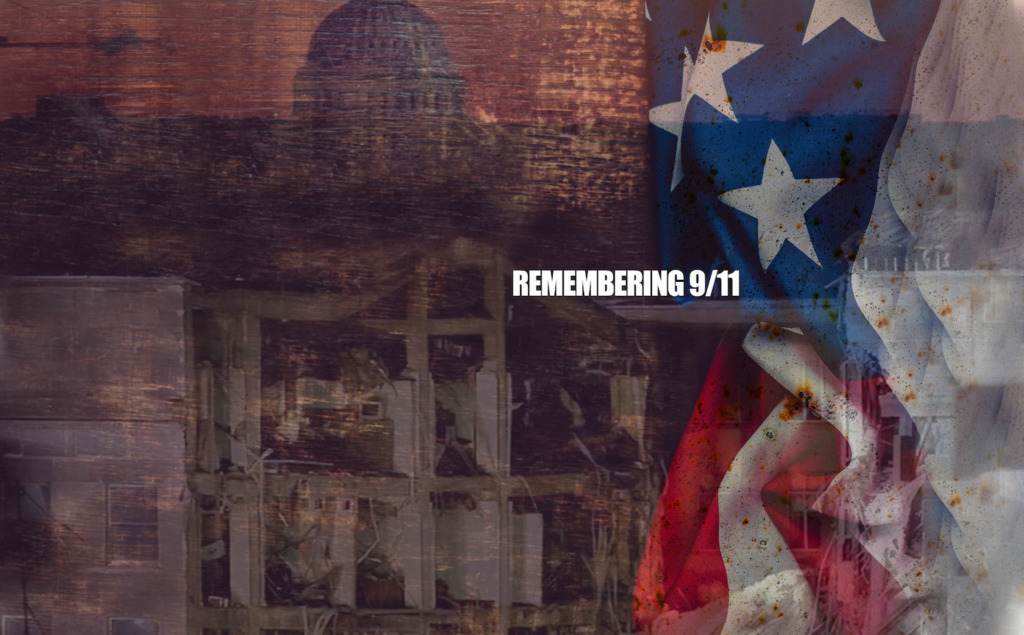The observance of 9/11 is an opportunity for most of us to recollect, reflect and to pray. We continue to remember the lives lost and accompany with our prayers and charity those who lost family or friends on that terrible day.
Living in Washington at that time, the attacks were only the first of events that had an impact upon me and so many others in Washington over the next year. Like so many I remember in detail what wasexperienced and how I felt as the tragedy unfolded.
I was a couple of months into my assignment as director of the Archdiocese of Washington’s Office of Youth Ministry and Catholic Youth Organization. The morning of Sept. 11 was clear crisp and cool. I was scheduled to meet at the Archdiocesan Pastoral Center with the director of the Mattaponi Youth Retreat Center.
Listening to radio as I drove to the pastoral center, I learned that a plane had hit the World Trade Center. I imagined that it was a small two-seat Cessna that had lost its way and crashed and didn’t think much more about it the rest of the commute.
When I arrived at the pastoral center, I was puzzled to find that it appeared abandoned. No one was in the halls or their offices. Everyone had crowded into the archdiocesan communications office, which had the only TV in the building. When we saw the second plane hit, we immediately knew it was intentional.
Checking in with the CYO office, which was located at the top of a hill above the National Basilica Shrine of the Immaculate Conception and the Catholic University of America, I learned that everyone was on the top floorlooking at the distant smoke rising from the Pentagon.
As the city shut down, all of the downtown offices were evacuated, with many workers unable to access their cars because the parking garages around Capitol Hill were closed. Others clogged the Metro and the streets as everyone tried to make their way home at the same time.
My brother and his pregnant wife worked downtown and ended up walking for some distance until they could get hold another family member to give them a ride home. I did not learn until much later that day of their ordeal and that they were OK. My brother remembered the crowds of people walking slowly and speaking quietly as they made their way.
I drove back to Cardinal James A. Hickey’s residence in NW Washington, where I resided and oversaw care for the cardinal who was increasingly frail. I could see and hear fighter jets circling above the city.
Like everyone else, I spent the rest of the day perplexed and shocked as I watched the reports on TV.
But the concerns about terror did not cease at the end of that long day. The year unfolded with other experiences that raised the specter of terror and unsettled our lives.
Less than a month later, as our nation was still coming to grips with the horrors of that day, another attack was underway.
This one was termed “bioterrorism” as anthrax was being mailed to various places, including Washington. Two of the people who died from exposure to anthrax were postal workers who processed mail at the Brentwood postal facility which served our pastoral center.
A few months later, during the first three weeks of October 2002, residents of the District of Columbia, Maryland and Virginia were constantly looking over their shoulders as people were being randomly shot as they carried out daily activities.
Given the Office of Homeland Security terrorist alerts and the frequency and location of the shootings, it was understandable that anyone would wonder if they might be the next target.
Like so many on this 20th anniversary, I feel a need to share these recollections in hope that this will help put those experiences in perspective, especially in the light of faith.
Tragedies and life-threatening experiences abruptly raise awareness of our personal weaknesses and limitations. When we realize our ability to deal with these events are finite, we turn — or return — to God for help.
How often during turbulent times such as 9/11, natural disasters, the pandemic or those that affect us personally, do we say in desperation, “All we can do now is pray”? Fortunately, God is always there for us and hears us.
Yet, it would be better if prayer were a constant in our lives rather than an exclamation reserved for desperate times. We need to regularly heed the words of the Psalmist to “cast your troubles upon the Lord, and he will sustain you” (55:23) — our personal concerns and challenges, as well as those we have about the confusion that permeates our cultural and political environments and the uncertainties with which we live due to the pandemic.
Our reflections on what occurred 20 years remind us how valuable our faith and hope in God are, and how important it is for us to nurture these and to live them so that they may prepare us for and sustain us during our darkest hours.

